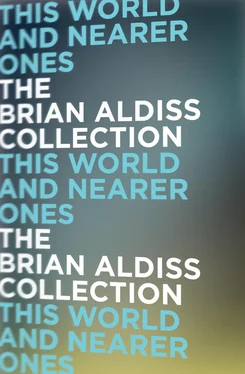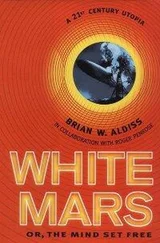It is less with Tiepolo than Cook that we are concerned, although art and scientific discovery are closely linked during this period.
Tiepolo, luminary of a maritime republic, like Turkey in eclipse, died at virtually the same time as Cook was setting up his observatory in Tahiti to observe the transit of Venus. The old painter’s day was done, his style superseded by the classicism of Mengs. James Cook also represented a new style. His painters, under Sir Joshua Banks, had no truck with queens or goddesses; they were trained to scientific observation. Cook himself was an excellent cartographer, and carried on his voyages new-style theodolites and accurate chronometers to chart his way.
Nor was it only in instrumentation, in the gadgetry, that things were changing. Other mariners, such as Samuel Wallis, had sailed the Pacific before Cook, and sought the mysterious Southern Continent; but they had been too ill on reaching those far waters to carry out their proper duties. Scurvy and dysentery claimed their crews. Cook observed proper diet, proper hygiene, and his crews stayed fit.
The South Seas acted as counterbalance to what enlightened Europeans experienced as the smallness of Christendom. Eighteenth-century security bred boredom. A new world was needed. In fact, what was eventually discovered was unsought: new dimensions of time, evolution, Romanticism and the complex of ideas which dominate our own times, whether we realise it or not.
We have a sense of the future very clear in our age, but all ages have their infancies in previous ones. Romanticism, evolutionary theories, speculations on time, were none of them new to the nineteenth or even the eighteenth century. While the bells of Rome and every other European capital were ringing for the relief of Vienna and the defeat of the Turks, Thomas Burnet in Cambridge was translating into English his Telluris Theoria Sacra ; it was published in 1684 as The Sacred Theory of the Earth . In a sonorous style which imitates Sir Thomas Browne, Burnet reveals his cosmological theory, which states that, before Creation, Earth was perfectly smooth like an egg until such time as it hatched and released a universal Flood. Burnet remarks, in a striking phrase, that we ‘have still the broken materials of that first world, and walk upon its ruins’.
Despite his egg theory, Burnet was no fool, and believed that since we had been endowed with Reason, we should exercise it to discover and understand the world in which we found ourselves. This is the doctrine of the Age of Reason.
Burnet continues, ‘The greatest objects in Nature are, methinks, the most pleasing to behold … Whatsoever hath but the shadow and appearance of INFINITE, as all things have that are too big for our comprehension, they fill and overbear the mind with their Excess, and cast it into a pleasing kind of stupor and admiration.’ Perfect Romantic doctrine, looking forward to Burke – and back to Lord Bacon: ‘There is no excellent beauty that hath not some strangeness in the proportion.’
The great philosophers of the time, Berkeley in particular, were more effectively working changes in perception. But new philosophies filter only slowly through the general populace; it was the voyages of men like Cook in undiscovered places which immediately caught the public imagination.
The motives behind the exploration of those distant regions were mixed, as man’s motives generally are, as the motives for the Apollo flights to the Moon in the sixties were. Unlike the discovery and opening up of the North American continent, the story of the South Seas must remind us of our own generation’s experience of space travel – not least in a remark Cook makes in one of his letters; in his reference to his ‘ambition not only to go farther than any man had ever been before, but as far as it was possible for man to go’, even the phraseology forges an unsought parallel between the Endeavour and the starship Enterprise .
To an eighteenth-century man, that distant part of the globe was the equivalent of a new planet, a watery planet like Perelandra. In some respects very like Perelandra; for, as in C. S. Lewis’s novel the inhabitants of Venus act out a religious drama, an allegory, so the inhabitants of the South Pacific served to act out some of the preoccupations of eighteenth-century man. Were they models of what the Ancient Greeks had been, enlightened people in a state of grace with nature; were they corrupt savages in need of a missionary; or were they sinless, Adams and Eves before the Fall, inhabitants of multitudinous Edens?
More than one construction can generally be made from one set of facts. Just as SF writers become accustomed to hearing from uninformed reviewers that they are ‘new Wellses’ or ‘latter-day Vernes’, so Europeans, striving to focus on the essential qualities of newly discovered races, claimed that they were ‘what the ancient Britons were before civilisation’, while the Australian aborigines were compared with Gaelic bards. Not analogies only but morals were to be drawn. As William Cowper put it, in the first book of his poem, The Task :
E’en the favoured isles,
So lately found, although the constant sun
Cheer all their seasons with a grateful smile,
Can boast but little virtue; and, inert
Through plenty, lose in morals what they gain
In manners – victims of luxurious ease.
It is a Protestant viewpoint not entirely dead today.
From the discoveries, from the debates, new sciences sprang. ‘Geography is a science of fact,’ said Bougainville, knowing he challenged an older and contradictory point of view. The depressing story of Tasmania – its history of the slaughter of the indigenous population boding ill for the inhabitants of any possible future planet any possible future space-travellers might come across – is lightened only by the French expedition there in 1802, when François Péron made the first anthropological record. Péron established amiable relations with the Tasmanians, and brought back to Europe 100,000 animal specimens, of which 2500 were of unknown species. Numerous meetings with the inhabitants were faithfully recorded.
All such findings were closely linked to the continuing search for the nature of man. Péron himself, addressing the French authorities, declared, ‘No doubt it is wonderful to gather the inert moss which grows on the eternal ice of the Poles, or to pursue into the burning heart of the Sahara those hideous reptiles which Nature seems to have exiled in order to protect us from their fury; but – let us have the courage to say it – would it be less wonderful, less useful to society, to send with the naturalists on this mission some young doctors specially trained in the study of man himself, to record everything of interest in both moral and physical matters which diverse peoples may have to reveal – their habitat, their traditions, their customs, their maladies both internal and external, and the cures which they use?’
The study of man himself . It was a sensible and enlightened goal. Yet, only a year after the French expedition to Tasmania, the British established a penal colony there. The wretched Tasmanians were then hunted to death, suffering alike at the hands of criminals and philanthropists. All became extinct within thirty years. The unfittest had not survived. Neither the most enlightened statesmen, nor all the rococo in all the churches in Europe could stem a general extermination.
Ideas or ideologies always arise which cushion us from clear perceptions of our own cruelty; the Victorians took refuge in a popular view of Darwinism, garbled in a loose phrase, ‘the survival of the fittest’; the Nazis believed they were ridding the German race of impurity by massacring six million Jews; Stalinists justified the Great Purge by their sterile belief in the entrails of Marx and Lenin; and the West turned a blind eye to the killing of perhaps a million Chinese in Indonesia in 1965 and 1966 because the victims were labelled Communist.
Читать дальше










